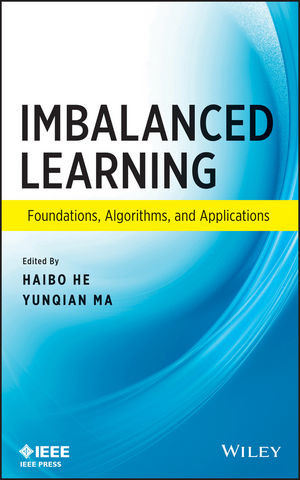

Most ebook files are in PDF format, so you can easily read them using various software such as Foxit Reader or directly on the Google Chrome browser.
Some ebook files are released by publishers in other formats such as .awz, .mobi, .epub, .fb2, etc. You may need to install specific software to read these formats on mobile/PC, such as Calibre.
Please read the tutorial at this link: https://ebookbell.com/faq
We offer FREE conversion to the popular formats you request; however, this may take some time. Therefore, right after payment, please email us, and we will try to provide the service as quickly as possible.
For some exceptional file formats or broken links (if any), please refrain from opening any disputes. Instead, email us first, and we will try to assist within a maximum of 6 hours.
EbookBell Team

5.0
28 reviewsThe first book of its kind to review the current status and future direction of the exciting new branch of machine learning/data mining called imbalanced learning
Imbalanced learning focuses on how an intelligent system can learn when it is provided with imbalanced data. Solving imbalanced learning problems is critical in numerous data-intensive networked systems, including surveillance, security, Internet, finance, biomedical, defense, and more. Due to the inherent complex characteristics of imbalanced data sets, learning from such data requires new understandings, principles, algorithms, and tools to transform vast amounts of raw data efficiently into information and knowledge representation.
The first comprehensive look at this new branch of machine learning, this book offers a critical review of the problem of imbalanced learning, covering the state of the art in techniques, principles, and real-world applications. Featuring contributions from experts in both academia and industry, Imbalanced Learning: Foundations, Algorithms, and Applications provides chapter coverage on:
Imbalanced Learning: Foundations, Algorithms, and Applications will help scientists and engineers learn how to tackle the problem of learning from imbalanced datasets, and gain insight into current developments in the field as well as future research directions.Content:
Chapter 1 Introduction (pages 1–12): Haibo He
Chapter 2 Foundations of Imbalanced Learning (pages 13–41): Gary M. Weiss
Chapter 3 Imbalanced Datasets: From Sampling to Classifiers (pages 43–59): T. Ryan Hoens and Nitesh V. Chawla
Chapter 4 Ensemble Methods for Class Imbalance Learning (pages 61–82): Xu?Ying Liu and Zhi?Hua Zhou
Chapter 5 Class Imbalance Learning Methods for Support Vector Machines (pages 83–99): Rukshan Batuwita and Vasile Palade
Chapter 6 Class Imbalance and Active Learning (pages 101–149): Josh Attenberg and Seyda Ertekin
Chapter 7 Nonstationary Stream Data Learning with Imbalanced Class Distribution (pages 151–186): Sheng Chen and Haibo He
Chapter 8 Assessment Metrics for Imbalanced Learning (pages 187–206): Nathalie Japkowicz